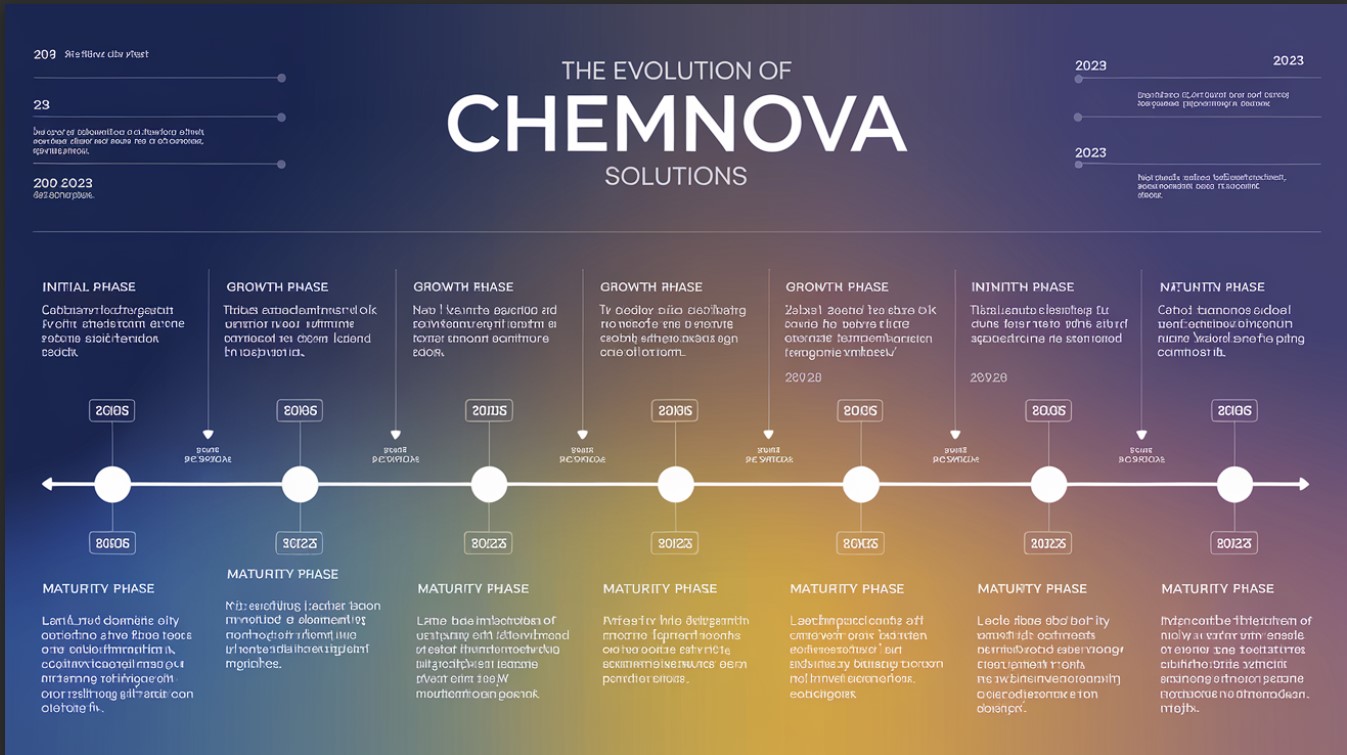
The other world merges scientific innovation with business acumen for a chemical manufacturing start-up. This realm transforms lab breakthroughs into sustainable value. The focus is on ChemNova Solutions, which expertly balances scientific and business innovation.
Incentive: Sustainable Specialty Chemicals
ChemNova Solutions aims to develop unique chemical products that do not resemble existing ones. The founders, chemists, and engineers are committed to developing sustainable specialty chemicals that address environmental and industrial challenges. They focus on biodegradable polymers and eco-friendly catalysts to replace harmful traditional chemicals. Their goal is to transform industries with high-performance, environmentally safe solutions. However, transitioning from the lab to a market-ready startup presents challenges.
The Foundation: Constructing a Strong Scientific Base
Scientific excellence at ChemNova Solutions was an integral aspect of their growth strategy. This involved significant investment in R&D, advanced labs, and hiring top scientists, creating a strong scientific foundation that enabled
Innovative Product Development: This entailed developing proprietary technologies and formulations that showed significant performance advantages over existing chemical solutions.
Securing Intellectual Property: Aggressive patenting and trademarking efforts by the company ensured a head start in the market.
Quality Control: Providing a high standard of control for value-assured products.
The Strategy: A Multi-faceted Approach to Growth
To bring increasingly applied science into practice and establish an additional market, ChemNova Solutions followed a multi-faceted approach toward growth:
Phase 2-Strategic Partnerships and Contract Manufacturing: The other strategy to extend the production capacities and, thus, customer reach through the existing infrastructures was to strengthen partnerships in contract manufacturing with major distributors of chemicals.
Phase 3: Construction of a dedicated manufacturing site: Commenced this investment for establishing a dedicated manufacturing facility, increased production capacity regarding swift market product demand, and enhanced some degree of independence in the supply chain. Sustainable manufacturing processes are defined as those processes that apply principles to reduce waste and energy.
Phase 4: Product Portfolio and Market Diversification Expansion: Investments in research and development would introduce an extended product line into future industrial applications that would bring them into new industries and geographical areas.
Addressing Strengths Against: Regulatory and Financial Pitfalls
Expansion for the chemical manufacturing startup has been hampered by regulatory challenges on one end and heavy financial requirements on the other. ChemNova Solutions faced these challenges in the following ways:
Preemptive Regulatory Compliance: They would be most careful in consulting with regulatory authorities so that their products and manufacturing processes could be entirely conformed to the relevant environmental and safety regulations.
Strategic Fundraise: They would raise seed funds to an extent with angel investors and venture capitalists to run their parent R&D work and, as the business grew, seek larger funding rounds to fulfill their expansion plans.
Financial Discipline: They practiced strict financial discipline, against which they could provide an effective check on expenditure and put investment, which would lead to the greatest return, foremost in priority.
Developing a Strong Team: Building a Culture of Innovation
ChemNova Solutions, whose people are laboring under some good fortune into teamwork, can also be credited for ChemNova Success. They have developed an environment in which innovation, collaboration, and continuous improvement thrive.
Attracting the Best Talents: They got leading chemists, engineers, and business professionals on board who share their vision for sustainability and innovation.
Employee Accountability: Workers were urged to voice their thoughts and held responsible for their performance.
Training and Development: To guarantee that its staff members’ skills and talents are always up to date, the company funds training and development initiatives.
The Effects of Promoting Sustainable Industrial Transformation
ChemNova Solutions has impacted the chemical industry because it has shown, by success, that sustainable specialty chemicals are strong candidates. The products ChemNova sells today allow industries to cut down on their environmental footprint and increase the sustainability performance for every industry.
Biodegradable Packaging: Potentially very promising in the development of innovative sustainable packaging alternatives to reduce plastic waste.
Green Coatings: Thus, using their eco-friendly catalysts, one can produce coatings whose chemical constituents use hazardous chemical agents.
Sustainable Agriculture: Their chemical solutions are quite common in farming and are formulated to reduce the use of non-biodegradable pesticides.
Lessons Learned: Key Takeaways from ChemNova Solutions
Any aspiring start-up in chemical manufacturing would be well advised to learn a few lessons from ChemNova Solutions:
To Be Built on Scientific Excellence: Formation of a strong scientific core and a continued commitment towards research and development.
Develop a Staged Growth Strategy: Proper scaling-up of operations and development of market reach must be in place.
Managing Administration of Regulations, Economics, and Financing: Nothing practical will ever seek to do all this at once, but at the very least it will prepare one for the anticipated challenges of compliance and money availability.
Hire an Excellent Team: Innovation and collaboration should follow through in the company culture. Sustainability Must take Center Stage: Any product or process initiated must be environmentally friendly.
Closing thoughts
The vision of ChemNova Solutions speaks to the power of scientific innovation entwined with sound business acumen. Such success of ChemNova proves this point that chemical manufacturing start-ups can also have bragging rights for rapid growth in acting as motors for changing the industrial system in a sustainably sound manner.






